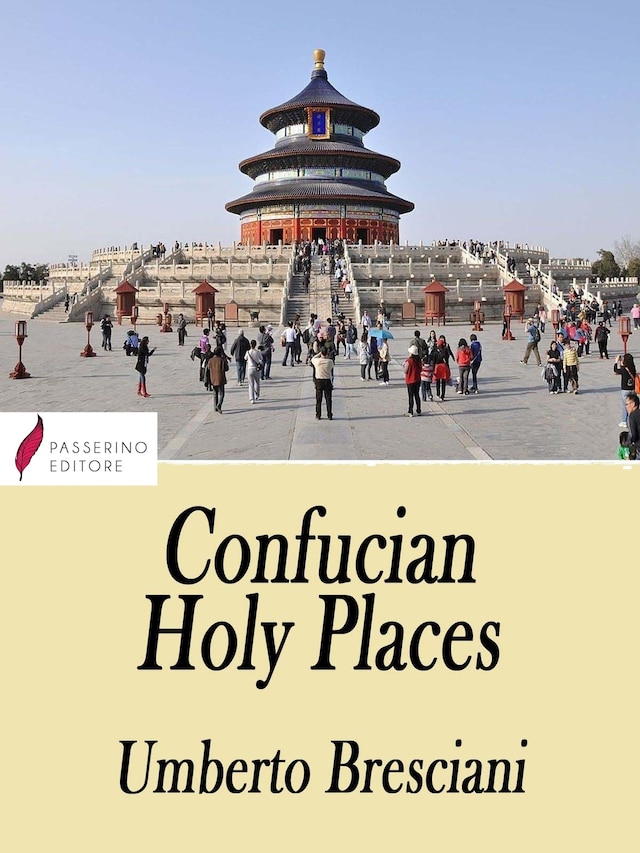
Confucian Holy Places
Om bogen
A holy place is a place that the followers of a religion consider having a special religious significance. A holy place may be visited by the followers of a certain religion, who find inspiration by visiting it; it may be visited also by other people out of curiosity about that particular religion, or else attracted by its historical, artistic, or scenic value. The religion or philosophy, or better religion-and-philosophy, known as Confucianism is a kind of legendary phoenix; it has been periodically destroyed, just to rise again from its ashes. The last astonishing case has happened in modern times. After one century of destruction, culminating in the Cultural Revolution, Confucianism has been gradually making a comeback. It returned to life as a philosophy during the second half of the last century. In this century, a revival is in process also of the religious face of Confucianism. In any case, Confucianism is both a philosophy and a religion, the separation of the two is a Western concern.
We will divide our list of the main Confucian holy places in six groups or sections, as follows:
1st Group: The Qufu Area.
2nd Group: Beijing and Other Historic Cities.
3rd Group: Places Related to Confucian Saints.
4th Group: Places Related to Leading Scholars (Sages).
5th Group: Confucian Academies.
6th Group: Sacred Mountains.
Umberto Bresciani
1942 Born in Ca’d’Andrea, Cremona, Italy.
1962 High School Graduate (Maturità Classica), Liceo Ballerini, Seregno (MI), Italy.
1968 Licentiate of Philosophy & Theology, Studentato Teologico Saveriano, Parma, Italy.
1969 Entered Chinese Language Institute (Annexed to Fujen University, Taipei, Taiwan).
1973 B.A. (major: History; minor: Chinese Studies), University of Maryland (U.S.A.), Far East Division.
1975 M.A. Chinese Literature, National Taiwan University, Taipei, Taiwan.
1983 Ph. D. Chinese Literature, National Taiwan University, Taipei, Taiwan.
Professor of Italian Language: National Taiwan Normal University, Taipei (since 1974).
Professor, Dept. of Italian Language & Culture, Fujen University, Xinzhuang, Taipei, Taiwan (since 2003).
Umberto Bresciani has lived in Taiwan for over 40 years.
His main interest is Chinese philosophical and religious thought and comparative theological studies.
Main publications
Books:
Xifang hanxuejia yanjiu wenshidongyi de shangdui (Evaluation of research by Western sinologists on the Wenshidongyi), dissertation for the Ph.D., Chinese Literature, Taipei: National Taiwan University, May 1983.
Reinventing Confucianism: The New Confucian Movement, Taipei: Ricci Institute, 2001.
La filosofia cinese nel ventesimo secolo – I nuovi confuciani, Roma: Urbaniana University Press, 2009.
Il primo principio della filosofia confuciana (Ebook), Gaeta: Passerino Editore, 2014.
 Umberto Bresciani
Umberto Bresciani 276 Sider
276 SiderFormat:
Sprog:
Engelsk